Best Online Banks in Switzerland
The number of banks in Switzerland is going down. There are one-third fewer banks now than there were at the turn of the century.
Still, for its size, the country known for its banks has a lot of bank branches. Japan is right above, but Italy is below. Switzerland has 37 branches for every 100,000 people, which is a lot more than the world average (10.8) and the EU average (20.9).
Customers, on the other hand, no longer use branches to do their banking. Switzerland and the rest of the world are moving toward digital banking.
In fact, 77% of Swiss people already do their banking online. That is nearly 20% more than the average in the EU.
On the other hand, it seems like less people use mobile banking. In 2019, only 43% of adults used their smartphones for banking at least once a month. Though, after the pandemic, the number is likely to be higher now.
The trend is definitely going up, but that doesn’t show up in the number of digital banks based on fintech in the country. With their online and mobile banking apps, the banks that are already there have the upper hand.
It says a lot that Revolut is the most-used new bank in the country. Popular all over Europe, this challenger bank is based in the UK.
What’s interesting is that the fintech company doesn’t even have a personal Swiss bank account, so it can’t be used to receive or send payments when a personal account is needed.
It looks like Swiss regulators have finally realized that fintech digital banks are a thing because they have started giving out licenses for them in 2019. Yapeal will get the first license in 2020.
Swiss financial regulator FINMA has also given licenses to SEBA and Sygnum, two new crypto banks.
Let’s dive right in and see what best digital banks are available in Switzerland right now.
Best online Banks in Switzerland
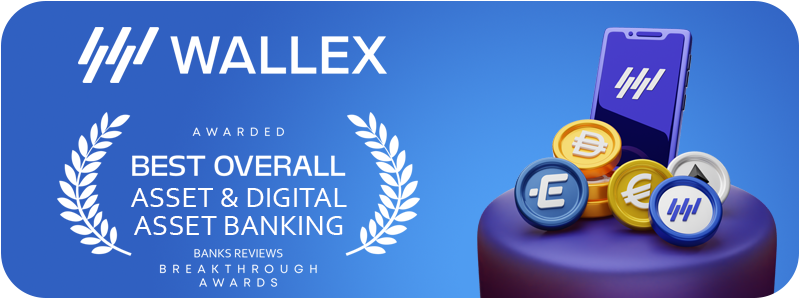
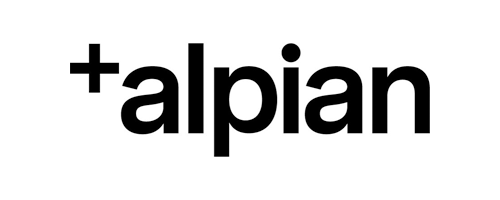
Alpian
Alpian is a digital wealth management app that is made for mobile devices. More importantly, it is the first digital private bank in Switzerland. In March of 2022, the digital banking license from FINMA was given to the fintech company.
The company is focusing on clients who have more than 100,000 CHF in savings and are willing to talk to advisors online instead of going to a branch.
Switzerland is not a very big country, but it is a very wealthy one. Because of this, there are many people who could use this type of digital bank that isn’t aimed at the mass market.
So, what does Alpian really offer its customers? First of all, you get accounts in CHF, GBP, EUR, and USD, as well as virtual and physical Visa debit cards.
You’ll only get one IBAN for all four accounts, which may or may not be a good thing. The company says it will offer good exchange rates and make it easy to put money into and take money out of each of the four accounts.
There are two types of accounts in terms of how they handle investments: Managed by Alpian and Guided by Alpian.
If you choose Managed by Alpian, their team will be in charge of making sure your money grows. You don’t have to do anything but watch your money grow on its own. After looking at thousands of investment opportunities, the company has put together a diversified portfolio.
Guided investing, on the other hand, means that the app will look at how you live and suggest a portfolio “built from a curated list of funds from industry leaders.” What you end up with is a portfolio that shows how your choices affect people and the environment.
Lastly, the company has a group of experts who are always available via chat or even video calls.
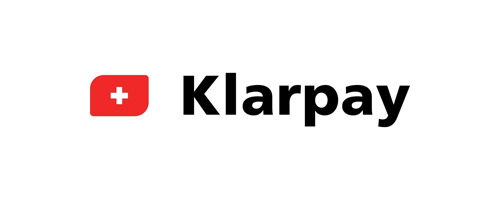
Klarpay
After Switzerland’s first private digital bank, Klarpay is the first Swiss fintech company to offer digital businesses borderless multi-currency accounts.
It’s mostly about a few different kinds of online businesses:
- Online merchants
- Marketplaces
- Partner networks
- Marketers, affiliates, and people who are influential on social media
Each of these businesses can get benefits that help their businesses in a way that a traditional bank can’t.
For example, online merchants will like the easy integration, the ability to accept more than 169 local payment options around the world, and an all-in-one dashboard that makes it easier to move money for all of their e-commerce activities.
Online marketplaces can accept and pay out money using hundreds of local methods. They can also set up payment accounts for their users, which lets them accept and pay out money directly from their Swiss IBAN accounts.
Affiliate networks let their affiliates get paid in the way they prefer, whether it’s through a bank transfer or another method, with no extra fees. All you have to do is set up the affiliate payout list the first time, and then you can make payouts with a single click or through the API.
And finally, marketers, influencers, and affiliates can get paid quickly and in the currency of their choice from networks, merchants, and platforms directly to their Swiss IBAN accounts.
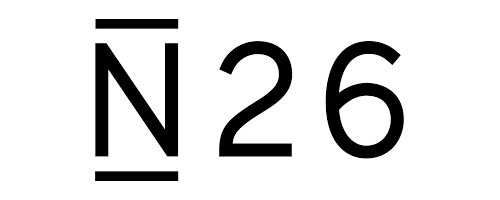
N26
N26, a German bank with a full German banking license, is the next one on our list. This bank is a well-known neobank that has digital bank accounts for people all over Europe.
In Switzerland, you can get a bank account in euros with a German IBAN. There are two kinds of personal accounts and two kinds of accounts for businesses.
N26 Standard is free and comes with a virtual debit card that can be used anywhere in the world, free and unlimited payments in any currency, 3 free euro ATM withdrawals per month, analytics and budgeting tools, protection for deposits up to €100,000, and more.
The N26 Smart account costs €4.90 per month and includes up to 5 free ATM withdrawals, a colorful debit card, an optional extra card, up to 10 sub-accounts, round-ups, premium partner offers, phone support, and much more.
N26 is one of the best online banks in Switzerland, it is worth to consider it.

Neon
Neon is a online bank and fintech company based in Switzerland. They offer both free and paid plans. Since Neon is not a bank but rather a financial technology company, the bank account is managed by the Hypothekarbank Lenzburg, which is a fully licensed Swiss bank.
With Neon, you get a unique Swiss bank account number, which you don’t get with N26 or Revolut. Neon is different from other Swiss banks because its exchange rates are better and its accounts have no or low fees.
Even though Neon just came out in 2019, they have more than 100,000 customers already.
Neon has three types of accounts, which are:
- Neon Free
- Neon Green (5 CHF/m)
- Neon Metal (15 CHF/m)
With the free account, you get a virtual card. If you want a real card, you have to pay 10 CHF for it. If you don’t want to do that, you can add the card to Apple Pay or Google Pay and use it with your phone.
The metal is by far the most interesting story. Neon metal costs 15 CHF per month and gets you a 22-gram metal debit card. With this card, you can get cash from ATMs for free anywhere in the world and up to five times a month in Switzerland.
It’s strange that this is Switzerland’s first metal card, but Revolut and others clearly gave it ideas. But the company was also clearly influenced by bunq, because for every 100 CHF you spend with the metal card, the company will plant a tree to try to make up for the CO2 produced.
Neon has a lot going for it and can help its users in many ways. Forbes’ choice of Neon as the best bank in Switzerland for 2022 makes sense.
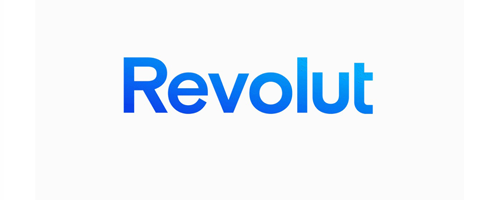
Revolut
Revolut is one of the most well-known digital banks in Europe and around the world. Traditional banks find it hard to compete with 18 million personal customers and more than 500,000 business customers.
It is thought that well over 200,000 people in Switzerland have a Revolut account. Even though Revolut didn’t have a Swiss IBAN until recently, this is still the case.
Before this year, you had to pay a fee to transfer money to the UK IBAN that came with your account, even if the money was in CHF.
When you open a Revolut account from Switzerland, you get a euro account with a Lithuanian IBAN and a GBP account with a GB IBAN.
Now, you can finally transfer money to your Revolut account using a general Swiss IBAN. No more fees when adding money to the account or card.
But why would someone want to use Revolut? For me, it’s the fact that my regular banking app doesn’t have budgeting and analytics tools. For others, it’s the simple and easy-to-understand app and the fair exchange rates.
There are also real-time alerts for transactions, which many banks didn’t have until recently. One big reason for some is investing in cryptocurrency, stocks, and commodities. Even though we don’t have these yet.
It is worth your time to check Revolut as one of The Best Online Banks in Switzerland.
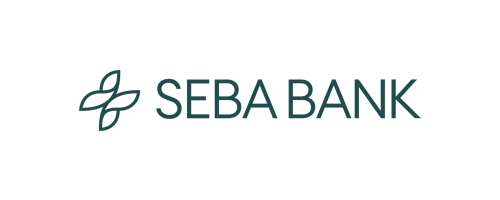
Seba Bank
SEBA Bank is one of two crypto banks in Switzerland that have been given a license by FINMA. Switzerland is leading the way because this is the first time anywhere in the world that licenses like this have been given.
SEBA Bank makes payments, transfers, and card services for fiat and digital assets easy and smooth for individuals, businesses, and institutions.
Its online banking service offers Fiat accounts in CHF, EUR, USD, GBP, HKD, SGD, PLN, and JPY.
There are also BTC, ETH, DOT, SOL, AVAX, LTC, XTZ, BCH, SNX, LINK, ADA, XLM, UNI, YFI, USDC, and AAVE cryptocurrency wallets.
Is there a difference between a regular bank account and a crypto bank account? In fact, a crypto account is a lot like a cash account at a traditional or online bank.
Through eBanking, you have full control over the account and can send and receive money from your own wallets, banks, or exchanges.
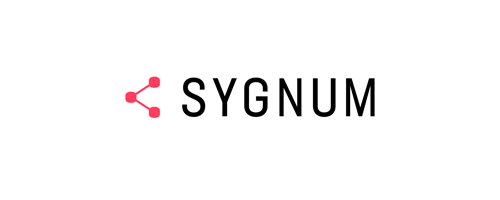
Sygnum
Sygnum is licensed to do business as a bank in both Switzerland and Singapore.
Customers of this first-of-its-kind bank can use their deposited CHF, EUR, SGD, and USD to buy, sell, and hold Bitcoin, Ethereum, XRP, and a Digital CHF token in a safe way in one account.
The company offers a wide range of services, such as a convenient and cost-effective credit line that uses crypto as collateral, accounts, custody, and staking, brokerage, tokenization (which gives investors unique investment opportunities and helps issuers raise capital more efficiently), B2B banking services, and more.

Wise
Wise is another neobank based in the UK that works in Switzerland. The fintech company offers a multi-currency account, a Visa debit card, and, most importantly, low-cost international transfers.
With a Wise multi-currency account, you get information about 10 local bank accounts. A Swiss IBAN account isn’t one of them, though. On the other hand, you can hold and exchange money in 53 different currencies, including the Swiss franc.
With the Wise debit card, you can spend money anywhere in the world with low exchange fees and no transaction fees. It is currently available to people who live in Australia, the EEA, the UK, the US, Japan, New Zealand, Singapore, Malaysia, and Switzerland and have more than one currency in their account.
Your money is kept safe in a separate bank account at a reputable bank. It is not covered by any of the protections that come with a bank account. But if Wise goes out of business, the money will be given back to you no matter what.
It is worth your time to check Wise as one of The Best Online Banks in Switzerland.
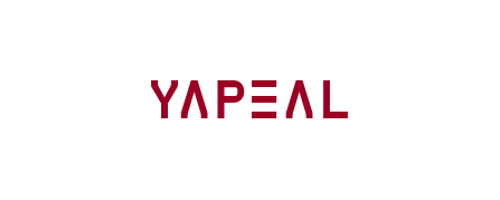
Yapeal
Yapeal is the first fintech company in Switzerland to get a license to operate as a bank. The company makes it easy to open an account with no paperwork and no hidden fees.
Like other digital banks that are run by fintechs, they don’t hold any money. All of the users’ money is kept in a bank that people trust. It’s the Swiss National Bank in this case.
All of the deposits are used only for what they were meant for and are protected by a Swiss scheme.
There are three types of accounts for adults and one for children aged 7 and up. The free Loyalty account only lets you do a few things. For example, you can get a debit card and a personalized IBAN, but you can’t make domestic payments, ISR, QR Bills, or eBills.
The Private account costs CHF 4.90/mo and comes with a free debit card, as well as many ways to pay and transfer money, as well as the ability to send money abroad without an FX rate surcharge. But you still have to pay to get cash out of the ATM.
Lastly, the Private+ account (CHF 8.90/m) has all the features and free domestic and international withdrawals.
Yapini is an online account for kids and teens starting at age 7. With this account, kids get a Visa debit card that can be used for mobile payments. Their parents or guardians can also keep track of how much money their kids have.
The company also helps people save for and invest in their 3a pensions. You can make one-time payments or set up automatic payments, and you can also keep track of your pension funds right from your account.
Advantages of online Banking
Digital banking is better than traditional banking in many ways. Of course, it also has some problems. But there is a difference between digital banks, which are usually set up by fintech companies, and the online and mobile banking services that traditional banks offer to their customers.
Best online Banks in Switzerland
Digital banks have low fees or none at all, which is especially helpful for everyday banking. This is very different from how most banks work, where you have to pay monthly fees, transfer fees, and other fees for basic banking services.
There are a lot of costs that banks have to pay. It costs a lot of money to have a lot of office and branch space, a lot of employees, and legacy systems that are expensive to keep up.
Neobanks have almost none of these things, so they don’t have to charge a monthly fee and can give much better interest rates on savings. When combined with free international transactions, this is usually enough to bring in a lot of new customers.
Interchange fees are the main way that digital banks make money. They don’t charge customers for these small fees. Instead, they charge retailers and merchants. Because the system is set up this way, users don’t have to pay for transactions, but the bank still makes money from these small transaction fees.
As was already said, another benefit for customers is that money transfers are usually free and happen right away. This is true not only between customers but also, often, between customers of different banks.
International transfers also have a small FX rate that is much cheaper than traditional banks and even some money transfer services like Western Union and especially PayPal, which are known for having terrible exchange rates. Therefore, it is worth your time to check The Best Online Banks in Switzerland.
Conclusion – Best Online Banks in Switzerland
Even though Switzerland is known for its banks, the banking market as a whole is slowly moving toward digital banking.
With only a few local digital banks and a few international neobanks entering the Swiss banking market, the change is happening slowly.
The mobile banking apps of incumbent banks also give challenger banks a lot of trouble.
But the fact that Revolut, one of the best online banks in Switzerland, got a few hundred thousand customers despite having a bad product (no personal Swiss IBAN! ), shows that people want an alternative to traditional banks.
It’s pretty easy for digital banks all over the world to get people to sign up for their apps. What’s hard is getting them to use their digital bank accounts as their main account.
Even harder to do so in Switzerland, where wealthy people might not want to give their money to the new players.
With their digital banks, the banks that are already in business have an advantage here. For example, about half of the people who used Credit Suisse’s CSX used it as their main bank account or salary account.
Trust in traditional banks is, of course, a lot higher than trust in fintech companies that have been around for less than five years and are mostly unknown.
“The Most Reliable source for accurate rates and financial info”






